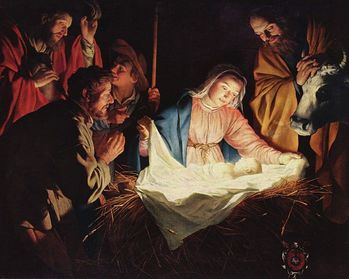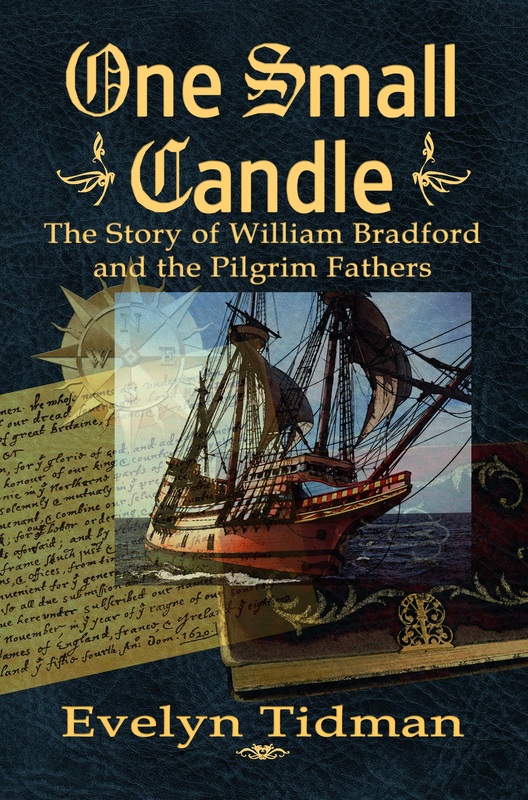
What, though, lay behind this religious zeal? What exactly did they think was wrong with Christmas? After all, it's celebrating the birth of the Lord Jesus Christ—isn't it?
Actually, no. In the first place, Jesus was not born on 25th December. The Bible is silent on his birth date, but indicates that it could well have been around the beginning of October. So how did 25th December become the celebration of Christ's birth?
There is no record in the Bible of anyone celebrating Jesus' birthday. In fact, Jews and first century Christians viewed the celebrating of birthdays as pagan. Two people are mentioned in the Bible as celebrating birthdays—one was Pharaoh in the time of Joseph, when he had the baker hanged, and the other was Herod when John the Baptist was beheaded. Both of them were pagan, and on both occasions someone was executed. Plainly then, the Bible is not the source of Christmas or any birthday celebrations.
In the fourth century AD Constantine the Great, emperor of Rome wanted to unify the empire. The biggest divisive influence was religion. If he could unify all these different factions under one religion, much of the discord would disappear. Long story short, he made Christianity the state religion. At the Council of Nicaea in 325 AD the different Christian factions argued about doctrine: Was Jesus God? Casting the deciding vote, Constantine the Great decided he was, and the beginning of the Trinity doctrine came into being, although it was another one hundred years before the Holy Spirit became a person and, the so-called third person of the Trinity. At around the same time, other doctrines came into Christianity, and among them the celebrating of Christ’s birthday.
As it happened, the pagan Romans, used to celebrating their own birthdays and those of the gods they worshipped, already had a feast on 25th December. Called the Saturnalia, it was associated with the birthday of the god Mithras, the sun god. It was a great feast day in Rome, people got drunk, had parties, gave each other presents, and did many of the things we associate with Christmas. They had a high old time of it. And the feast went on for days. They were a bit miffed at losing the best celebration of the year. So, wishing to keep everyone on side, Constantine changed the feast to the celebration of Christ’s birthday, but kept all the customs.
So what? you may say. As long as one is celebrating Christ’s birthday, God must be pleased. Honouring Christ cannot be wrong. Besides, that was seventeen hundred years ago. Nobody bothers about that now. Furthermore, the churches take the lead in the celebration.
2 Peter 3:8 says: ‘One day is with Jehovah as a thousand years and a thousand years as one day.’ While seventeen hundred years may seem so long ago as to be outside of human memory, God still sees it. To Him, it was yesterday. He knows that the celebration originally honoured pagan gods. How does He feel about that? Well, what does the Bible say?
At certain times in their history the Jews mixed worship of God with the worship of pagan gods. God was furious with them, to the point of destroying the nation in 607 BC when the Babylonians laid siege to Jerusalem, ultimately flattening it and killing most of the inhabitants. Survivors were taken into exile. Why? Jeremiah 44:2-5 tells us: “This is what Jehovah of armies, the God of Israel, says, ‘You have seen all the calamity that I brought on Jerusalem and on all the cities of Judah, and today they are in ruins, without an inhabitant. 3 It is because of the evil things that they did to offend me by going and making sacrifices and serving other gods whom they had not known, neither you nor your forefathers. 4 I kept sending all my servants the prophets to you, sending them again and again, saying: “Please do not do this detestable thing that I hate.” 5 But they did not listen or incline their ear to turn back from their evil by not making sacrifices to other gods. 6 So my wrath and my anger were poured out and burned in the cities of Judah and in the streets of Jerusalem, and they became a ruin and a wasteland, as they are today.’
This is what the Parliamentary Puritans saw. During the Reformation, the Puritans, the Separatists who emigrated to New England, the Non-conformists et al, all searched for religious truth. The Bible had now become available in English and they could come out from under Catholic dogma. Religious doctrine was hotly debated in taverns and drinking houses. It was the topic of conversation. It did not take long for them to realise that Christmas was not only not a Biblical doctrine, but worse, had its roots in the worship of false gods. The Pilgrim Fathers, the subject of another of my books One Small Candle also did not celebrate Christmas because of its pagan origins.
What about today? Many people simply do not care what God thinks. Others do not believe in him at all, and yet others are just taken along with Christmas because everyone does it, or because it is romantic, like a fairy-tale. ‘It’s for the children’, they say. Or, ‘It’s a time of family gathering.’ A magical time. Yet there are other wonderful things to do with children besides telling them untruths about a so-called Santa Claus. And why do we need a special day to give presents? Are presents not acceptable at any time, far more so because they are given out of love, rather than from a sense of duty? Families can get together to have a good time at any time, and parties can take place at any time. Why does it have to be linked with a religious holiday?
Others are religious, and think they are honouring Christ by celebrating his birthday. Yet does it honour Christ to carry on a pagan celebration, just changing the name? If Jesus had wanted people to celebrate his birth, would he not have told them to do so? On the other hand, he wanted them to commemorate his death, telling his disciples: ‘Keep doing this in remembrance of me.’ He said nothing at all about his birth. Furthermore, the Bible gives a date for his death. Not so his birth.
Sadly, for many today, materialism and having a good time have assumed far more importance than any religious celebration. Worse, many of those who are alone at that time of year feel left out and lonely, as they are excluded from the general jollity. None of it brings honour to God or Christ.
Perhaps Cromwell was right after all.
 RSS Feed
RSS Feed



